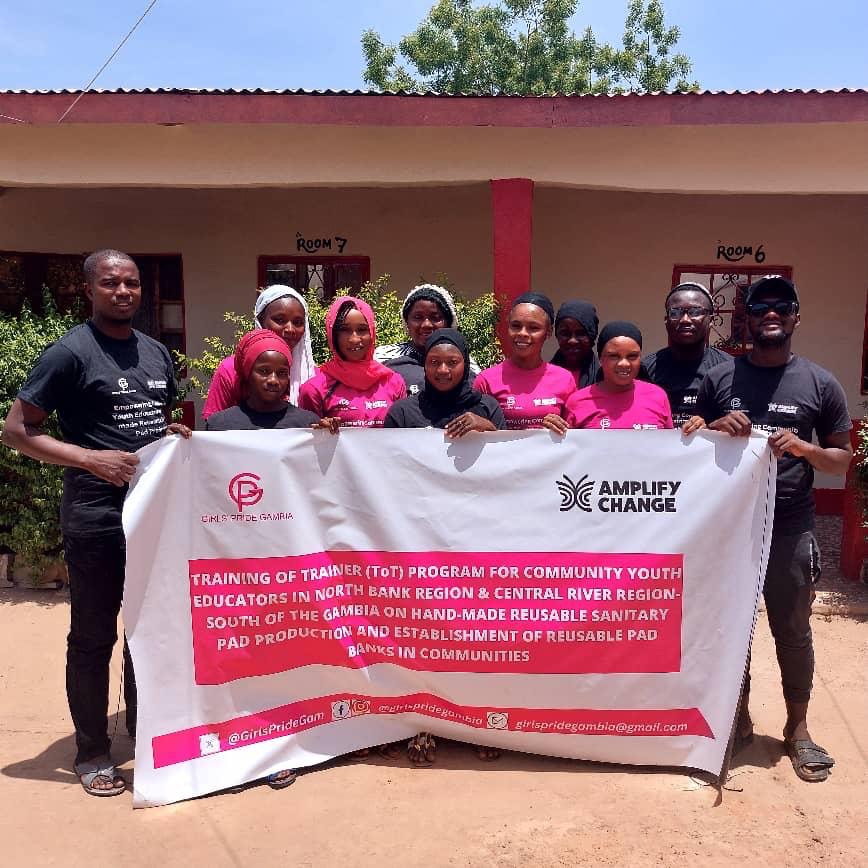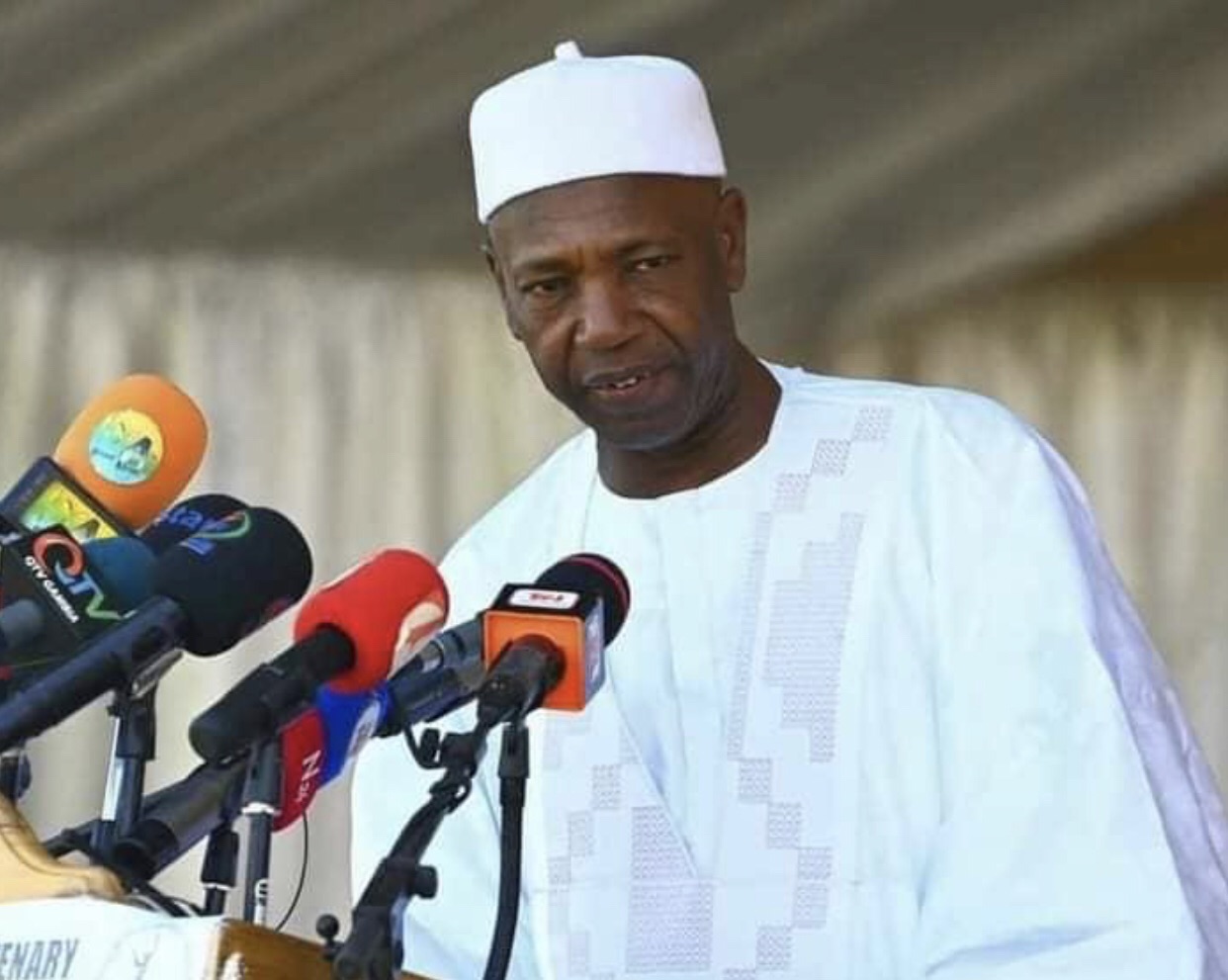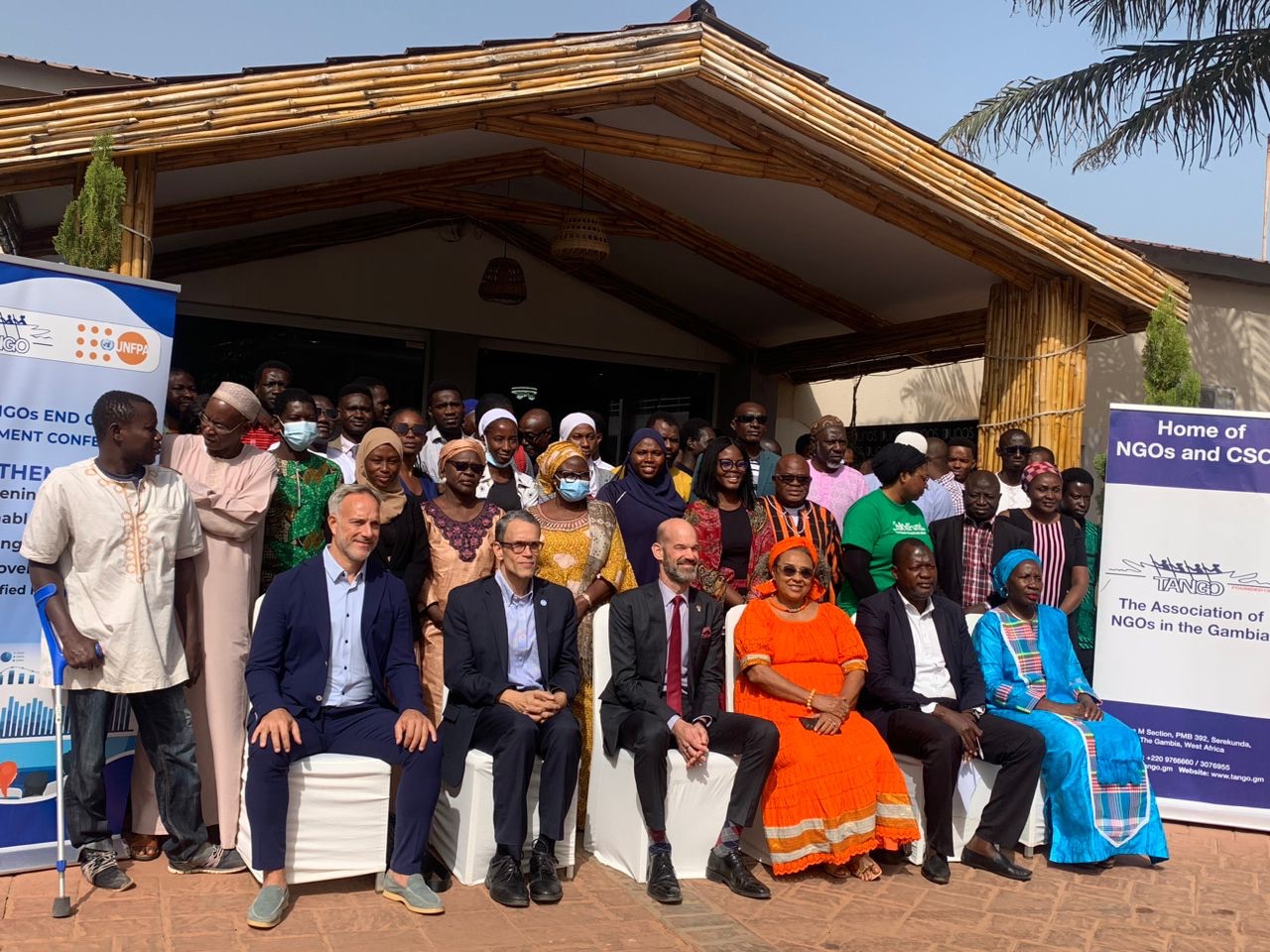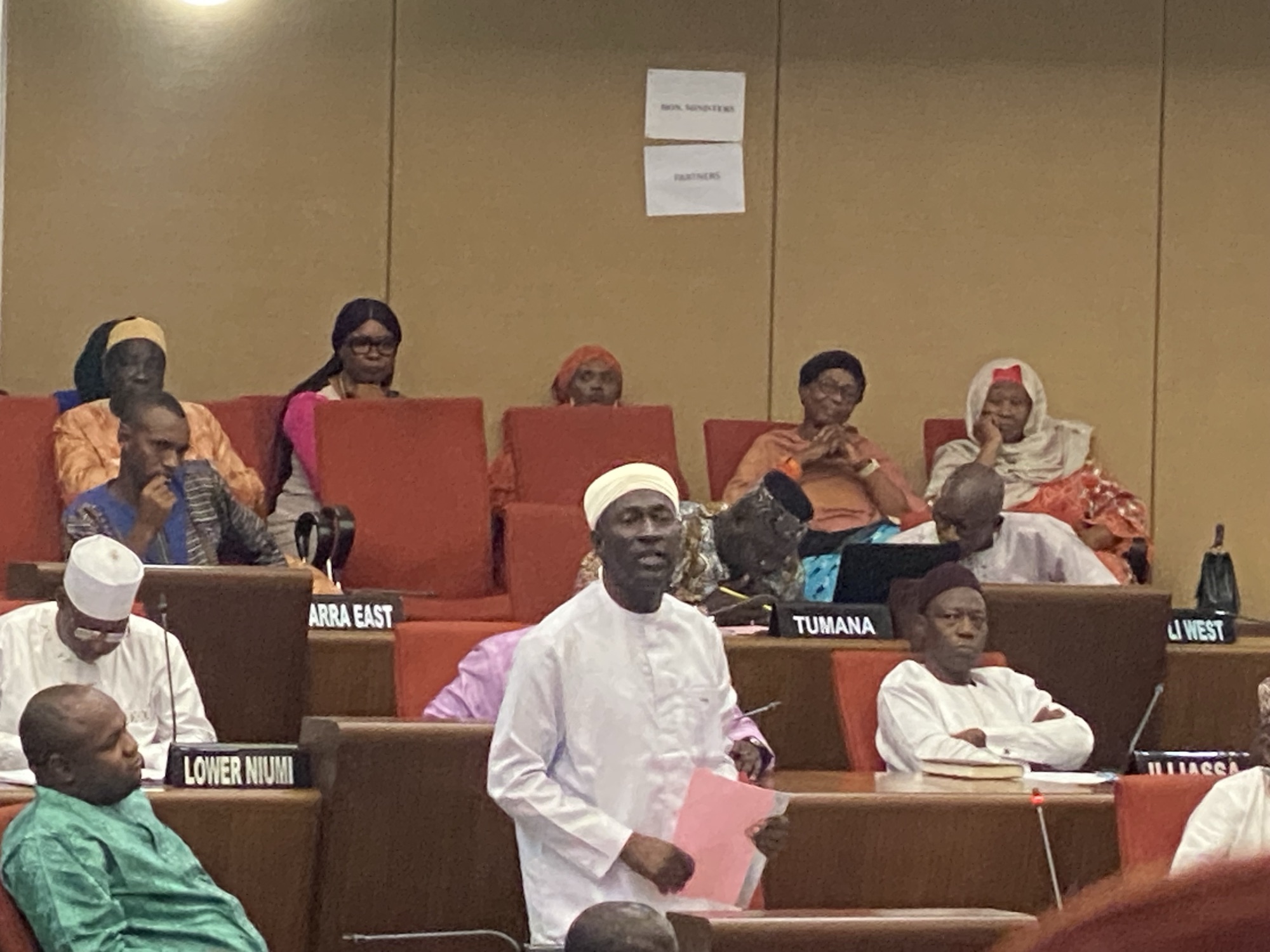By Yunus S Saliu
Community Youth educators from the North Bank Region and Central River Region south of the Gambia recently completed a weeklong training of trainer (TOT) programs on handmade reusable sanitary pad production and establishing reusable pad banks in communities.
The weeklong training programs funded by Amplify Change were organized by Girls’ Pride Gambia on how to produce handmade reusable sanitary pads and were held in separate regions. At the end of the training, the Girls’ Pride Gambia provided raw materials for participants to produce handmade reusable pads and establish reusable pad banks in their various communities in both regions.

Meanwhile, the training on handmade reusable pad projects targeted villages using the last mile approach to eradicate period poverty in the villages at a time.
“So instead of training someone in the entire region, we decided to focus on training individuals per village, and at the end of each weeklong training, Girl’s Pride Gambia gave individual participants raw materials that are enough to conduct a step-down training in their respective villages and also to produce handmade reusable sanitary pad production and establishment of reusable pad banks in their communities,” Fatoumata Jabbi-Kassama, Founder and CEO of Girls’ Pride explained.
She reiterated that the project was funded by Amplify Change and the implementation of the project commenced in May 2024 while step-down training has been ongoing since then “Though some are yet to complete their training,” she noted.

But so far, according to their statistics, she said 390 adolescent girls, boys and young women have been trained by the Community Youth Educators that were trained by the Girls’ Pride Gambia at their training of trainers program, and “They have produced 2124 handmade reusable sanitary pads and 655 reusable storage bags from materials that are locally available in the Gambia.”
Ma’am Fatoumatta Kassama thanked Amplify Change for funding the project while urging participants not to relent in their efforts to produce more handmade reusable sanitary pads for their use and banking in their communities.





